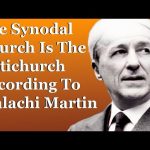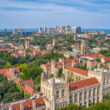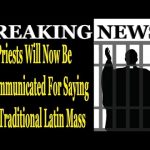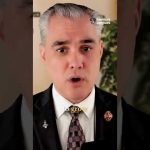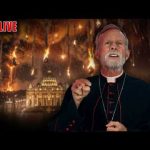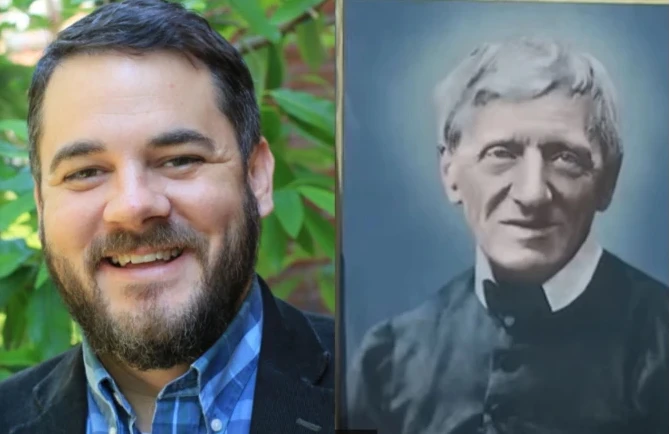
Ryan Marr is an expert on the English saint and is a former associate editor of the Newman Studies Journal. / Credit: Courtesy of Ryan Marr
Vatican City, Nov 1, 2025 / 11:50 am (CNA).
St. John Henry Newman, the Anglican clergyman who converted to Catholicism but whom many in both London and Rome distrusted for years, stands today as a beacon that continues to inspire many to embrace the Catholic faith as he did.
“I am personally grateful for the testimony of Newman’s life, because without his legacy I might not be Catholic today,” confesses Ryan “Bud” Marr, a renowned scholar of the English saint, upon whom Pope Leo XIV conferred Saturday the title of doctor of the Church.
Newman’s memorable quote — “to be deep in history is to cease to be Protestant” — was pivotal in Marr’s personal conversion. When he first read it, “I was studying to be a Protestant pastor,” he revealed in a conversation with ACI Prensa, CNA’s Spanish-language news partner.
“I immediately understood that I had to read the rest of Newman’s essay to put to the test the truth of his statement. I couldn’t simply ignore that challenge and continue on the path I was on,” he explained.
The expert, a former associate editor of the Newman Studies Journal, added that “there are countless similar testimonies” to his and that they will continue to grow in the coming years in light of Newman’s designation as the 38th doctor of the Church.
For Marr, Newman possessed a singular gift: “Expressing fundamental truths in brief and memorable phrases,” capable of transcending time and touching consciences. This is why so many people, over more than a century, have found in his writings a path to conversion.
Development of doctrine, a decisive contribution
For Marr, Newman’s most significant contribution to contemporary Catholic theology is on the subject of the development of doctrine. “It’s not that Newman wrote something entirely new,” he explained.
“Other Catholic theologians, especially St. Vincent of Lérins, had already addressed the topic of doctrinal development. But Newman synthesized diverse ideas into a unified and compelling theory, so that any subsequent theologian has had to start from his “Essay on the Development of Christian Doctrine” when addressing this topic,” he pointed out.
This vision, he added, was decisive for 20th-century thought. Newman showed that “the Church’s understanding of revealed truths deepens over time.” “In some cases, the Church offers new formulations — as happened with the Nicene Creed — but these developments always affirm and clarify what has been handed down,” he emphasized.
“The deposit of faith is immutable, but our understanding of that deposit actually expands,” he added. Each generation, Marr emphasized, must “proclaim the truth of the faith within its own linguistic categories,” but always preserving the “essential while facing the challenges of its time.”
Conscience and the sensus fidei as means of Christian discernment
When it was announced that Newman would be proclaimed a doctor of the Church, Marr recalled, “some observers predicted that Pope Leo XIV might bestow upon him the title of Doctor of Conscience.” This is no coincidence. Newman, he noted, dedicated some of his most influential writings to the “centrality of conscience in the journey to God,” both during his Anglican period and in his new life as a Catholic.
Like St. Thomas Aquinas, Marr explained, “Newman believed that a person should never act against the dictates of their conscience,” because doing so “would undermine the very coherence of the moral life.”
However, the former champion of Anglicanism, who converted to Catholicism at the age of 45, also warned about the human tendency toward “self-deception,” Marr explained. The scholar noted that Newman insisted on the need to “form the conscience according to divine and natural law.”
In his 1874 “Letter to the Duke of Norfolk,” one of his most celebrated essays, Newman cautioned against a “false notion of conscience,” identified with the right to one’s own will, an idea that, according to Marr, “reflects the modern mindset” that values subjective independence over objective truth.
He therefore pointed out that “as Catholics, we must work to restore the true vision of conscience, in line with the teaching of theological giants like Aquinas and Newman.”
The sensus fidei is not ‘a populist counterweight to the hierarchy’
This theme is intertwined with the concept of the sensus fidei, the supernatural sense of the faith bestowed upon the baptized: “Newman was ahead of his time in recognizing that the lay faithful have an essential role in the defense and transmission of tradition. The priesthood of all believers means, in part, that the baptized possess a special sense of the faith, a capacity that we must strengthen through devotion and study.”
Marr noted that, for Newman, this sense also had a communal dimension, the sensus fidelium, or sense of the faithful. “He did not understand it as a populist counterweight to the hierarchy,” he clarified. “He knew that the pope and the bishops exercise a divinely instituted authority, but he remembered that there have been times in history — such as during the Arian controversy — when the laity defended the faith, even when some pastors wavered.”
A prophet in the face of modern apostasy
With prophetic clarity, the expert noted, Newman “foresaw the growing irreligion of the modern world.” In his 1873 sermon “The Infidelity of the Future,” Newman warned that the trials of the future would be so great “that they would shake even hearts as valiant as those of St. Athanasius or St. Gregory the Great,” Marr said.
Newman, he explained, perceived that the greatest danger of modernity would be precisely the spread of unbelief, a society that is “simply irreligious.”
However, faced with this bleak outlook, “Newman neither called for retreat nor proposed authoritarian strategies.” He courageously confronted the philosophical ideas of his time and offered a compelling explanation of the “reasonableness of the Christian faith,” deeply rooted in Catholic tradition and in dialogue with modern philosophy, he noted.
Newman and the intellectual mission of the laity
Newman, the expert continued, understood the life of the Catholic Church as something “dynamic,” where “all members of the Body of Christ have an active role in the proclamation of the truth.”
The fathers of the Second Vatican Council took up this vision, presenting it as an urgent call to contemporary Catholics. The expert warned that it is important to understand this call well: “The laity do not fulfill their vocation by becoming more clerical, but by sanctifying the world according to their own specific mission, bringing the Gospel to education, law, medicine, and culture.”
This story was first published by ACI Prensa, CNA’s Spanish-language news partner. It has been translated and adapted by CNA.

